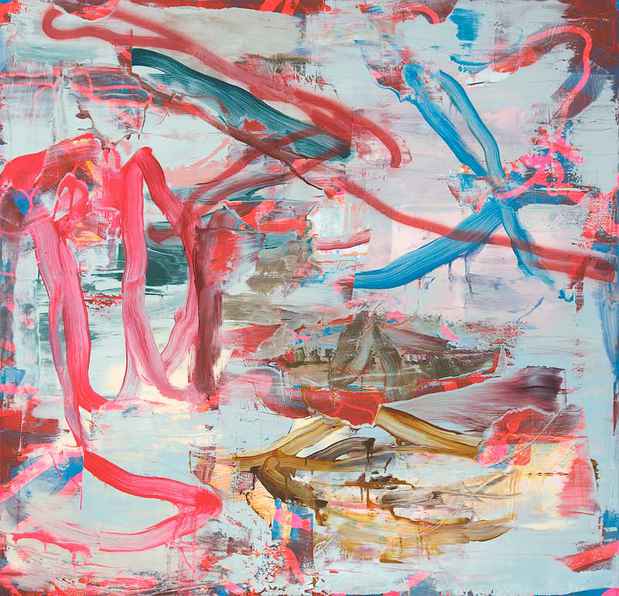Karl Klingbiel "The Gates of Eden"
Masters & Pelavin

This event has ended.
Masters & Pelavin presents a solo exhibition of recent work by American artist Karl Klingbiel. The show will include a new body of abstract paintings and large-scale woodblock prints. This will be Klingbiel’s first exhibition at the gallery.
Klingbiel’s work has long been a reaction to our condition of having unlimited information at hand. If modernism was the apotheosis at the end of a long history of reaction to prior innovation and ostensible progress, then the place we find ourselves today, as both artists and individuals, is at a point where information, and thus influence and inspiration, has been flattened and obscured. The notion of historical progress, long suspect, is revealed as something broader and more chaotic, layered and reiterated to a point of arriving at something almost arbitrary. What we confront and try to resolve is language, understanding, and the knotted matricies left to us by having access to understanding of systems so complete that they paradoxically become more mythological than schematic.
The paintings represent an effort to access and represent a resolution of this condition as something more intuitive and instinctual than analytical. Rather than trying to posit a cogent analysis of our environment, they look to tap into something not only essentially pre-modern, but something that ideally lies beneath acquired language itself. In formal terms the paintings often employ broad planes of color, a kind of surface or skin that represents yearning in place of resolution, voids in place of clarity, and lacunae as a condition of understanding. This masking, interrupted by glimpses of something more literal, metaphorically acknowledges that to respond in a meaningful way to the world we find ourselves in we have to establish what we do not know, and to try to access something that offers a connectivity beneath what we consider shared language or information. The paintings reveal just enough on their surfaces to suggest the depth and complexity of the networks of influence and understanding that lay open to us in many forms, yet remain stubbornly fugitive. They are works that exist in the context of modernism but actually grow out of the myriad of seemingly unrelated art-historical antecedents that metaphorically offer clues to the place we find ourselves today. They are abstract paintings that look for their sources in such things as 11th Century Buddhist Thangkas, Mayan cartographic pattern-making, Dutch tapestries, popular 18th century British engravings, comic books, computer models of the universe, and so on.
The paintings’ resolutions lay in an amalgam of all this noise until they reach a point of stillness, a point of formal equivalence that is both everything and nothing. The artist remarks, “With disparate source material I am trying to create representation that associates one internal relationship with another. I am after the idea of relationships, or the ghosts of relationships as different histories that veil and unveil themselves at points of demarcation, points of transition that are themselves in transit.” In formal terms, the paintings become layered to a point of critical mass until the act of erasing becomes synonymous with that of adding. When the act of constructing them becomes the same as taking them apart, they have arrived at a state from which there is no longer any departure point, but only show the traces, the anecdotal remains, of things that are far too complex to depict in their entirety, and thus act as markers on a road whose origin and destination become circular and equivalent.
Media
Schedule
from November 03, 2011 to December 17, 2011
Thurs, Nov. 17, 6pm to 8pm: Graham Haynes, Live Performance
Opening Reception on 2011-11-03 from 18:00 to 20:00